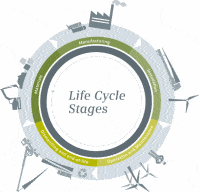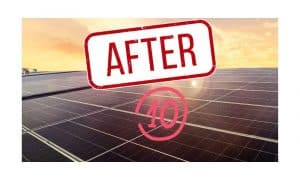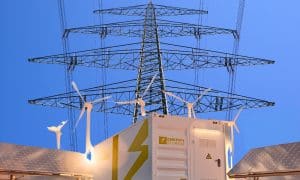German wind energy company Siemens has published detailed performance data covering CO2 savings and payback times for both geared and direct drive wind turbines in offshore and onshore projects.
The four new Environmental Product Declaration brochures are based on Life Cycle Assessments (LCAs) of four defined Siemens wind power projects: two offshore wind plants with 80 wind turbines, and two onshore wind projects with 20 wind turbines.
According to the company, LCAs are a cradle-to-grave tool for calculating the energy payback time of a power generation system – the amount of time a plant must operate to produce as much energy as it consumes. They also provide data on the environmental savings of large-scale wind power systems over their lifetime.
“Environmental product declarations provide customers, developers and authorities the requested transparency on the environmental performance of our products and they help us to further develop our portfolio, thereby ensuring competitiveness,” said Siemens Wind Power and Renewables chief executive Markus Tacke.
An onshore wind farm featuring 20 Siemens SWT-3.2-113 wind turbines shows an energy payback time of 4.5 months. During its entire life-cycle it will produce 57 times more energy than it consumes and just four grams of carbon dioxide per kilowatt/hour (g/kWh) of electricity generated, compared to 865 g/kWh for a fossil fuel powered plant. This return includes all manufacturing, installation, operations, maintenance and dismantling of the wind farm over an estimated 25-year life cycle.
Even greater savings are found in examination of an offshore wind project with 80 Siemens D6 wind turbines. Over a 20 year lifetime, these projects generate 53 million megawatt hours and save 45 million tons of CO2, which is equal to the amount of CO2 absorbed by a forest with an area of 1,286 square kilometres over 25 years. The Environmental Product Declaration brochure states this figure corresponds to a CO2 emission of only seven g/kWh compared to the 865 g/kWh found with average global fossil power production.

















































